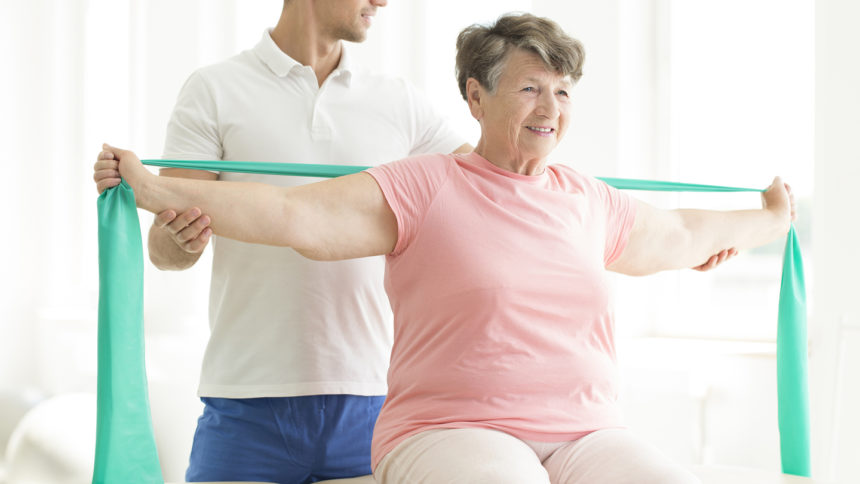
Results of a recent trial show that hospital-to-home self-managed exercise and nutrition plans can help older adults prone to frailty — or those who are already frail — in the long run.
“Pre-frailty and frailty in older adults are associated with poor health outcomes and increased healthcare costs — and these worsen during hospitalization,” said Chad Han, PhD, a research fellow within the cancer survivorship program at Flinders University’s Caring Futures Institute in Australia. “We found that a well-accepted self-managed exercise and nutrition intervention program with good preliminary effectiveness can help to reduce frailty, as measured by the Edmonton Frail Scale.”
The team he is part of looked at pre-frail and frail older adults in southern Australia hospitals from September 2020 to June 2021. They used the Edmonton Frail Scale (EFS) score, and looked at factors such as nutrition, handgrip strength, cognition and mood.
The inpatient plan included up to 30 minutes of walking on weekdays, even if they needed some assistance. They could also do standing exercises. People at home had exercise three days a week, including muscle strengthening. They also gave people customized nutrition plans. Telehealth support was provided.
When people stuck with the plan, they lowered their EFS score at three and six months compared to a control group who didn’t follow the plan. People who followed the intervention plan improved in the overall Short Physical Performance Battery score at three and six months; the mini-mental state examination at three months; and handgrip strength and Geriatric Depression Scale at six months.
“This study provides proof of acceptability and adherence to a patient self-managed exercise-nutrition program that may reverse or slow down the progression of pre-frailty and frailty in hospitalized older adults,” Han said.
Authors say their research could provide clinical guidance for medical professionals who want to create their own exercise and nutrition programs for people vulnerable to, or already experiencing, frailty who are hospitalized and planning to return home.
“In a selected group of older adults, such a program might support patient autonomy, enabling them to maintain independence, through implementation of exercise and nutritional self-care,” Han added. The study was published in Clinical Interventions in Ageing.




